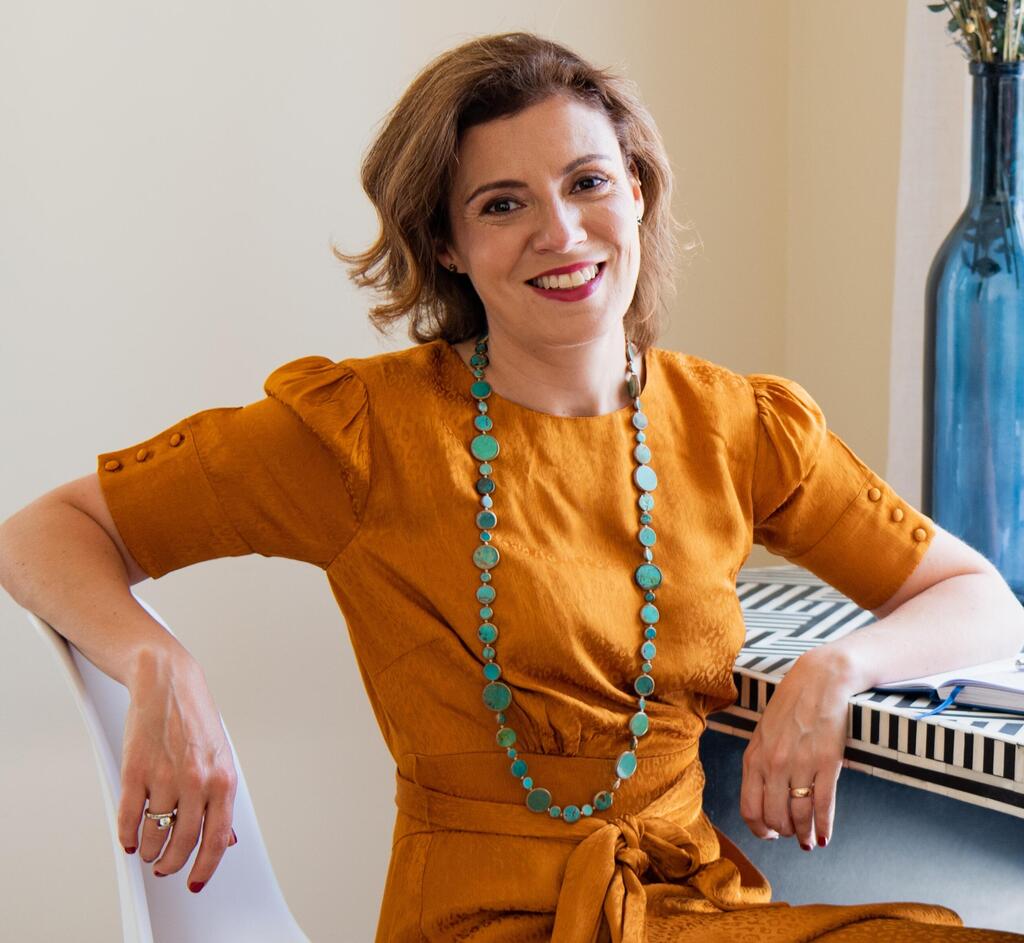Getting your Trinity Audio player ready...
Dr. Ilana Horwitz notices the transformations and changes among young Jewish people in the United States from observing her own students at Tulane University in New Orleans.
Other stories:
"The Jewish students in my class are young people, most of whom are unaware that Jews were oppressed in the past," she shared. "In their experience, Jews have never been even poor. They think things like, 'Yes, maybe my great-great-grandfather was somewhat poor,' but the idea that Jews were in the working class in the U.S. is so foreign to them."
According to Horwitz, "These are also children who did not grow up in a reality where being Jewish could be something frightening. They did not grow up under suicide bombings, as something that threatens them or people they know in Israel. The fact that there is much less terrorism in the U.S. makes Jews feel very safe, and they don't feel the same fear that Jews are in danger."
And yet, antisemitism is on the rise.
"There is undoubtedly a clear increase in antisemitism in the U.S. However, I believe that at least for now, young Jews feel very safe in their place. They are also part of the broader liberal culture that values constantly showing how much you care about marginalized groups, through codes like 'sensitivity and openness to diversity' or 'tolerance of others,' and all sorts of embellished terms that sociologists use.
"These are not just Jews. You can talk to any academic at a prestigious university in America today and get the feeling that it's something they are supposed to, at least rhetorically, say. The feeling is that it's a symbol of sophistication, that you care about others and care about the world. Universalism and not particularism. Caring about Jews living in Israel? This is perceived as so particularistic, so narrow-minded, and that is not what should be conveyed by the elitist status."
Social connections have an impact
Dr. Horwitz's research focuses on contemporary Jewish life, primarily in the U.S., and raises central questions that concern many in Israel and the Jewish world, particularly regarding the younger generation and its connection to the State of Israel.
Among other things, she explores the trend of the young Jewish generation in the U.S. distancing themselves from Israel and Judaism — a trend that is reflected through considerable statistical data collected by various research institutions, with Pew Research Center at the forefront.
Horwitz, a Stanford University graduate and a lecturer on Jewish studies, Jews and sociology, recently participated in a conference on this topic held in Israel, organized by the Ruderman Family Foundation and the University of Haifa, as part of the program for a master's degree in Jewish Studies in the U.S.
"My research extensively examines the role of intersections such as age, gender, and social and economic status and how these categories influence young Jews in the U.S, with an emphasis on their Jewish identity and their perspectives, particularly towards Israel," she explained. Her studies focus on both Jewish and non-Jewish individuals, but in her current work, the emphasis has been on examining the social connections of young Jews and how this influences their Jewishness.
"Today, young Jews are interested not only in what their parents or the Jewish community deem appropriate for them but also in what the general liberal social climate signifies for them. What is expected of them based on a much broader set of societal demands"
"There are numerous questions that touch upon the worldview of Jews in the U.S. regarding Judaism and Israel. We already know that significant changes are occurring there, primarily among the younger generation. We see intergenerational shifts, especially when comparing the attitudes of young individuals to those of their parents or grandparents," she says.
The researcher notes that the data primarily shows that many accuse the young Jewish generation. "They are told things like 'You no longer care about Israel' or 'You have lost interest in Judaism.' I want to take a step back and consider how the broader social climate in the U.S., within which young Jews are ultimately connected, influences their commitment - their commitment to Judaism and Israel, but also other commitments they have," she said.
No longer in the right political group
According to Horwitz, the socio-economic status of young people also influences their perspectives. "Considering the fact that Jews make up about 2% of the U.S. population and interact heavily with non-Jews, the question arises as to how non-Jewish influences surrounding them shape their self-perception as Jews."
"There are circles around us," Horwitz explains, "the immediate circle being immediate family members. The broader circle is the neighborhood, the community, the social interactions surrounding you, and further on, there is the broader circle of the country, its institutions, and the general population."
According to her, "Today, young Jews are interested not only in what their parents or the Jewish community deem appropriate for them but also in what the general liberal social climate signifies for them. What is expected of them based on a much broader set of societal demands, which manifest, among other places, in their social circles with the non-Jewish population."
This matter is evident in their responses regarding their priorities: in a survey by Dr. Eitan Hersh (for the Jim Joseph Foundation, see below), it is revealed that work satisfaction and travel are the significant things young Jews want to pursue after college, and at the bottom of the list is involvement in Jewish studies or Jewish organizations.
What is the explanation for this? Horwitz articulated, "In the U.S. there is a clear political-social connection. If you are on the left side of the spectrum, you spend almost all your time only with people from that group, and if you are on the right side, it's the opposite. We live in a highly departmentalized manner in community terms. In the past decade, the left has become characterized by momentous pluralism, which is why young Jews have a need to 'align themselves' with these demands in terms of their identity. They need to find a way to reconcile the liberal worldview expectations that primarily focus on paying attention to marginalized populations within the American social system, to non-white individuals, and the strong perception of anti-colonialism that Jews need to navigate through."
Horwitz notes that "80% of Jews identify as liberals, and they are perceived as white. They look white, and often, they also identify themselves as white. Therefore, they are perceived as part of the high-ranking class that dominates the U.S. Hence, it is more difficult for them to reconcile with the other aspects in which they are marginalized, especially if others do not see them as subject to any form of oppression.
"We know how social we are as people and how much we embody what the environment expects of us. The fact that the majority of Jews in the U.S. are Ashkenazi creates an insecurity that compels them to emphasize the extent to which they are concerned about the oppression of non-white minorities."
A significant identity crisis
According to the researcher, gender doesn't play a role in the social influences she examines, but a significant Jewish background does have an impact. "If you have a stronger Jewish identity and also a strong sentiment towards Israel, things only get more complicated," she stated.
If I understand correctly, you are saying that in the current discourse within the framework of liberalism in the U.S., it is impossible to hold onto any particularist identity and still feel committed to the common good of the world. You have to choose, no matter what - And if those young Jews have to choose between liberal values and Jewish identity, they will choose the former?
"I think they find themselves in a certain tension. They can't resolve it. I think this is an issue that specifically relates to their attitude towards Israel, because for them, supporting the Zionist idea or Israel as a Jewish state is a choice of loyalty to their people and its tradition, which is not a value that their environment conveys as right or moral. The American liberal perception sees the world in a rather simplistic way, revolving around the question of 'who is oppressed? Who is suffering?' and that's it, they go along with that. Maybe the older generation of their parents saw that Jews were suffering and needed support and defense, but for the young generation, Jews are not suffering, they are perfectly fine. Others are suffering. When they constantly look at reality through that 'who is suffering' perspective and not through questions of loyalty and tradition, they feel a significant identity crisis."
"When I ask my students what is the most significant thing that happened in Jewish history, they all say 'the Holocaust.' American Judaism sees the Holocaust as the starting point of everything. They know very little."
Maybe it relates to the fact that ultimately, you're talking about a specific two percent living at the high socioeconomic level in the U.S. It doesn't reflect a more diverse experience of Jewish identity. I don't think it applies, for example, to a Hasidic Jew from Borough Park who can barely speak English, or even just a non-white Jew in the U.S. Perhaps in order to be in this conflict from the start, you need to have a very specific and narrow perception regarding the question 'What is a Jew?'
"I think that's a really good point. I think American Jews have a very narrow understanding of the Jewish experience. I talk to them in my classes, for example, about non-white Jews, but in their general experience, they are not exposed at all to our level of diversity. I think if they were to come to Israel and see the population here, how ethnically diverse it is, they would be shocked. And yes, there is also poverty here. I think that's part of what contributes to the problem. They have a narrow experience of Judaism, of Jews as a white and privileged group that mostly revolves around elite universities and live quite well in American society. Those are the Jews in their view. Maybe if they understood the broader experience of Jews in the U.S. and in Israel, they would understand that it's more complex."
Historical and social ignorance
When Horwitz describes the young generation of American Jews, she points to a mature and educated population within America, yet one that is lacking historical awareness or the ability to perceive reality in a non-dichotomous way. "I can understand why it seems like a paradox," she admitted. "We are known for having a good education system. So, first of all, this might be the impression, but its not necessarily the actual situation. I think especially regarding Jewish education, Jews in the U.S. don't really receive the relevant background. They have their studies for their Bar Mitzvah, and that's about it. How, for example, do they not know that the population in Israel is ethnically diverse?
"It's simply not one of the goals of Jewish education. The goal of Jewish education is to make children love Israel. So, the narratives and Tanach stories are intended for that purpose. It doesn't concern numbers, facts, or the stories of those who live here. When I ask my students what is the most significant thing that happened in Jewish history, they all say 'the Holocaust.' American Judaism sees the Holocaust as the starting point of everything. But what about the Enlightenment? Education? The fact that Jews lived in ghettos detached from the general population and then, with emancipation, were able to integrate into the world? They give them too much credit. They know very little."
How will what you're describing affect the future, especially in relation to Israel?
"It's difficult to predict what the future holds, but we can assume that there are certain aspects that will be significant in this context. I think that when Jews come to Israel, it is quite beneficial in terms of gaining perspective on the story and recognition of 'true Israelis' beyond some abstract idea about them. I assume that the 'Birthright' project contributes positively and helps young people understand that there is a lot of diversity in Israel. Now I've heard that there are some budget cuts and a decrease in the frequency of trips, and in my opinion, that's obviously less than ideal. Those trips contribute a lot to young Americans.
"I also think that social media plays a part in this matter. Much of the tension surrounding Jewish identity comes from social networks, and people post very anti-Israel things. I don't know how it will develop, but since everything that happens on social media deals extensively with identity formation, I think that many young Jews say to themselves: 'Hey, I saw the hashtag 'Palestinian Lives Matter' and other similar things, maybe I should support them.' On the other hand, there is also antisemitism on social media."
Questions of diversity and ethics are a hot topic in Israeli society no less, especially in light of the struggle surrounding our justice system, which divides us. The remaining open question is how we Israelis can, if at all, involve these young Jews in our internal discourse on these issues? How can we increase mutual engagement?
Not much reading between the lines is necessary to understand that Dr. Horwitz is not optimistic on the matter. "I don't know how to create a type of relationship that would be meaningful apart from through social media," she said.
"It's never easy to develop relationships between people who are not in the same geographic space and to do it authentically in a way that is meaningful not only to American youth but also to Israelis. I think what we can say is that they have fewer and fewer common denominators with each other. I don't know what the proper intervention would be to bring them into interaction. In the U.S., what helps people develop a positive opinion of others is direct encounters. There is a need to find a way to meet and communicate in a non-superficial manner, but I'll leave it to the experts to think about how to do it right."





